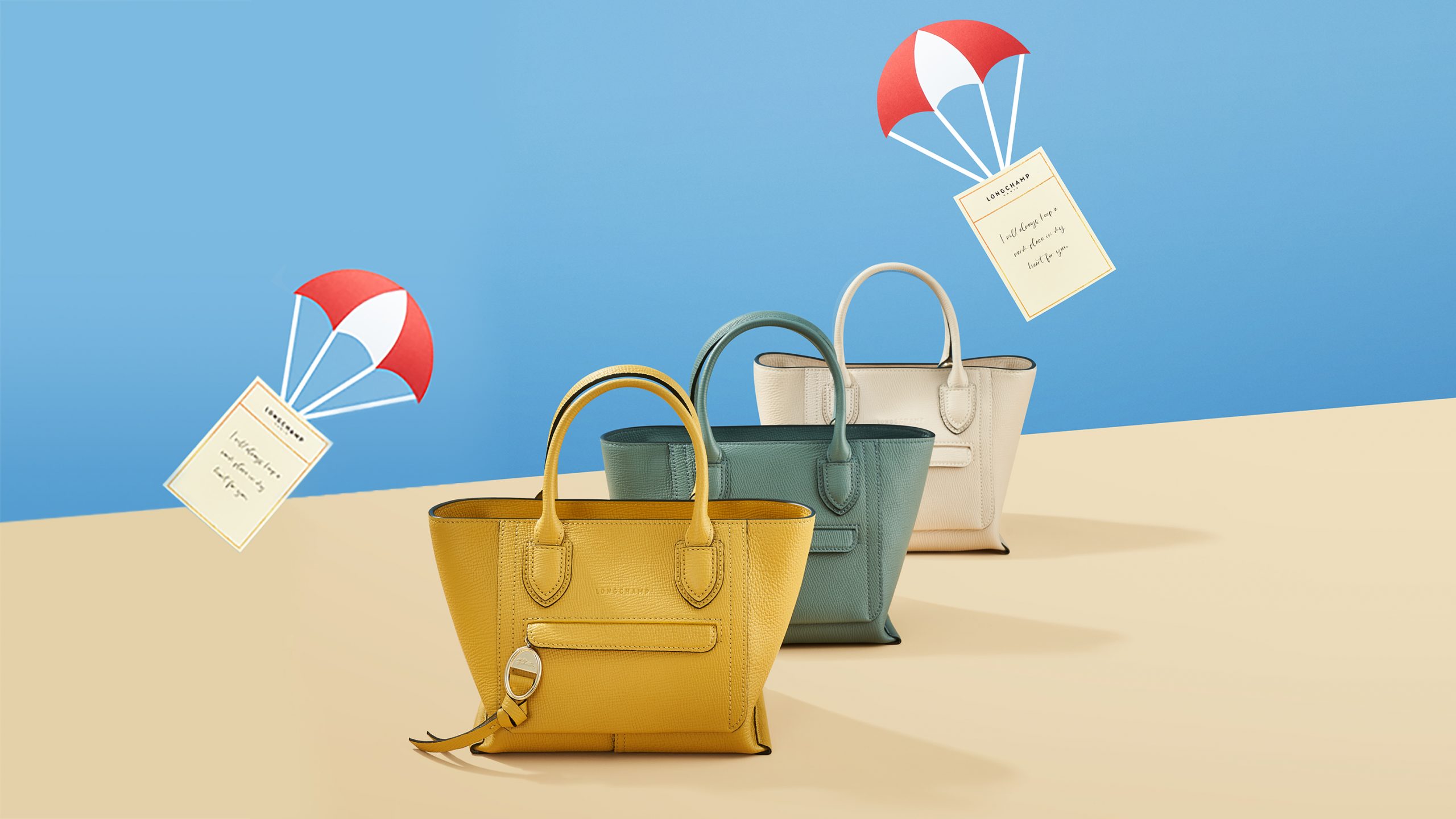
Longchamp, known for its Le Pliage handbags that easily fold into a pocket-size rectangle, has dropped a new rendition of the classic bag just for Chinese consumers during the 11.11 Global Shopping Festival.
As the world’s largest sales campaign draws near, the French luxury house launched special-edition, embroidered Le Pliage bags that will be offered only on Tmall Luxury Pavilion, Alibaba Group’s dedicated platform for luxury brands. It’s also offering a limited number of handbags only previously available in its official shops in Paris to Chinese high-end shoppers who can’t travel to Europe due to current pandemic border restrictions.
We spoke to Longchamp General Manager of China Josephine Liang to get the brand’s take on its second year participating in 11.11, what else it has in store for Chinese consumers and how Covid-19 has accelerated Longchamp’s digital transformation.
This is Longchamp’s second 11.11 since the launch of your official flagship store on Tmall Luxury Pavilion. What do you plan for Chinese consumers this year?
We have already seen a significant boost in traffic in our flagship store on Tmall Luxury Pavilion since October. This is because the shopping festival has trained Chinese consumers to pay more attention to brand offers around this time. Though we don’t offer promotions or discounted rates outside of our usual schedule, 11.11 for us is an opportunity to engage and surprise shoppers with special products, and particularly to reach the customers who truly appreciate and love our brand. We’ve prepared specially designed bags that come in our most popular color – hawthorn – and they are not launched anywhere else. These were designed for Chinese consumers and only available for Alibaba’s 11.11. Another exclusive product we are offering is the Eiffel Tower bag. This was previously only available in our official stores in Paris. We’ve secured a good amount of these limited-edition city-themed handbags for Chinese consumers who cannot travel to Europe this year due to the pandemic.
Tell us more about your partnership with Tmall Luxury Pavilion.
E-commerce has reshaped people’s lives. Personally, I don’t go physical shopping as much anymore and make most of my purchases online, so I know how important is for online shoppers to find a trustworthy, reliable platform. We studied Tmall Luxury Pavilion for a few years before joining the platform, and it became increasingly clear that this would be a great partnership. We believe in Alibaba’s big data and platform capabilities, as well as its ethos and vision.
Has the Pavilion helped you better understand Chinese consumers?
In a market as big as China, our brick-and-mortar stores might be reaching just a very small portion of the population. By working with Tmall Luxury Pavilion, we’ve been able to recruit new customers from almost anywhere, including from cities such as Urumqi, Hohhot or Xishuangbanna. We love how the platform helps us expand consumer touch points without having to expand physically, and we can easily analyze their shopping behaviors, such as what they are buying and what time of the day they tend to shop.
An encouraging insight has been that Pavilion shoppers aren’t just looking for value-for-money offerings, and they are increasingly eyeing upscale items. They have the spending power. All they need is for the brand to showcase and explain the products. We’d show them the quality of our leather used in our men’s and women’s handbags and accessories, and they are willing to buy. We now have a fast-growing percentage of leather customers in addition to customers of our nylon lines.
Also, the more we work together with the Pavilion, the more we realize that online and offline channels are not cannibalizing each other. If you put yourself in the shoes of a retail manager, she might worry that e-commerce would take business away from her store. But we’ve found that the customers who shop in-store and those who shop on e-commerce platforms have vastly different shopping behaviors.
How are online and offline customers different?
In retail stores, sales staffs play an important role: they understand customers’ needs, interact with them and introduce a certain range of products for them to choose from. In stores, consumers can touch, feel and try on products in front of the mirror. Online platforms offer a completely different customer journey. Online behavior is more one-way, in the sense that consumers often go straight to the products they are looking for. They can search and browse for the brand when they want to, but it can be difficult for us to reach them.
In our Luxury Pavilion store, we’ve experimented with ways to transform e-commerce shopping into a two-way, interactive shopping experience. For example, if products go out of stock, consumers can easily send requests to our customer-service staff to send them a reminder whenever we’ve replenished our stock. We’ve noticed a consistent trend where there would be an immediate uplift in sales, whenever we restock items. This means consumers are following our store very closely. We work to make sure that online shoppers have an excellent experience, from the moment they search for us to the architecture of our store – such as how we present products digitally and whether the journey is user-friendly and convenient. And we analyze shopping patterns and behaviors to provide the right offers at the right moment.
We’re seeing the Covid-19 outbreak prompting more businesses, including ones in the luxury retail industry, to accelerate their digital transformation. Has this also been the case for Longchamp?
Many brands in the luxury sector that had been hesitant to enter digital have now made the jump. That’s a good thing following up with the evolution of the China market. For Longchamp, we are already digitized and have launched an e-commerce presence many years ago. For us, this meant going deeper in terms of our product offerings, service and experience, as well as our partnership with Tmall Luxury Pavilion. We are leveraging Alibaba’s analytics to learn about different consumer segments to deliver differentiated products and services and strengthen our emotional connection with consumers.
What is your outlook on the Chinese market?
It has been a challenging and extraordinary year, but also it has also been an encouraging year for the Chinese market. China was the first market to be hit by the pandemic and to go under strict lockdowns, but it was also the first to recover and grow even further. Of course, we still need to remain prudent, cautious and even sharper than before in the face of uncertainties following the pandemic. And I truly believe online digitalization will be the key driver of growth and play an even bigger role in the next few years.




